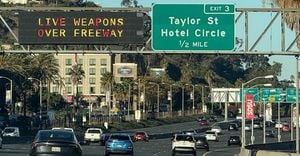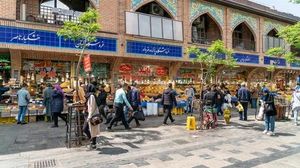Vancouver's furious debate over the natural gas ban for new homes reached fever pitch last week as City Council members faced off on whether to preserve or reverse the long-standing prohibition. The meeting was intense, with over 140 speakers registered to voice their opinions, and protests erupting outside City Hall—from musical chants to thunderous drumming, the energy was palpable.
Despite strong support from Mayor Ken Sim and several councillors to reinstate the option of heating new constructions with natural gas, the proposal was shot down. The council’s vote ended in a surprising 5-5 deadlock, resulting in the continuation of the ban—a decision lauded by environmental advocates.
Now, since 2022, any new low-rise residential building constructed within city limits has been required to use low-emission electric heating solutions; this step was seen as significant progress toward achieving Vancouver’s broader climate goals. Yet, just last summer, the city council had opened the door to reconsider allowing natural gas heating, sparking this most recent public uproar.
City councillor Rebecca Bligh, alongside fellow ABC city councillors Lisa Dominato and Peter Meiszner, voted against the motion to lift the ban, citing concerns over climate change and affordability. "The affordability argument doesn’t pencil out," Dominato stated. She pointed out the long-term costs associated with heat pumps, asserting they will often turn out to be more affordable than natural gas systems.
At the core of this debate are questions surrounding climate change's imminent threats and the legacy of municipal policies to tackle it. Numerous speakers underscored the importance of maintaining strong climate action, highlighting the existing statistics: burning natural gas contributes significantly to the city’s greenhouse gas emissions, accounting for approximately 55 percent of local emissions.
During the deliberations, Green Party councillor Adriane Carr noted, "It's not just possible; it's imperative. We’re part of the problem, and we need to act. Why is the decision to uphold the ban so important? It's about our children’s future and our city's reputation. We cannot have the world’s issues as excuses for local non-action." This sentiment was echoed by many others who emphasized their urgency tackling current environmental crises, pointing to the heat dome tragedy of June 2021 where hundreds succumbed to extreme temperatures, which could have been mitigated by electric heat pumps.
The proposed restoration of natural gas heating had also drawn attention due to the city council’s unusual split among its members. Historically, decisions are often made along partisan lines; this time, the majority was faced with protests from within its ranks, challenging the council's ideological unity. Mayor Ken Sim defended the natural gas option, invoking the argument of affordability. "We have to signal as the City of Vancouver, but what’s the cost to our residents? It is not simple, and there are tradeoffs at play," he remarked shortly before the vote.
Outside the council chambers, the mood was electric, with activists coordinating efforts to mobilize community support. Organizations including Stand.Earth and the David Suzuki Foundation rallied effort to counteract what they labeled as fossil fuel interests!s rear-guard measures. An email sent by the Resource Works organization urged its subscribers to flood the council with pro-natural gas comments. Speculation surrounds Resource Works’ connection to provincial natural gas interests, raising concerns about who truly stands to benefit from the reversal of this ban.
On the other side, healthcare advocates have been forceful, emphasizing the health risks associated with gas appliances, which release pollutants affecting indoor air quality. Nearly 150 healthcare professionals sent letters to the mayor, urging him to reconsider based on health concerns and the environmental impacts of fossil fuel use. "Relying on gas is dangerous," they argued, contending the approach is outdated and harmful to public health.
After much public engagement, City staff delivered compelling evidence against lifting the ban. Their detailed report contradicted claims about affordability, demonstrating how bringing back gas to homes would not only derail greenhouse gas reduction strategies but also fail to alleviate cost concerns. The city’s own sustainability staff revealed lifting the ban would lead to emissions increases comparable to adding 16,000 additional cars on the roads.
Meanwhile, councillor Mike Klassen highlighted the broader regional energy grid concerns during the deliberation process, noting how Vancouver, as part of the larger metro area, shares energy demands and impacts with its neighboring municipalities. He urged calculations concerning the practicality and resilience of electrical systems if demand for all-electric heating surged. "Vancouver is not isolated," he argued, stressing these concerns need scrutiny when making policies surrounding energy use.
This council meeting not only revealed divisions among civic leaders but also ignited fierce discussions about energy policies and climate strategies impacting Vancouver’s future. Activists felt energized, showcasing how community engagement matters. With the council’s vote, they view it as more than just a temporary victory but also proof of the growing grassroots power seeking to tackle climate emergencies head-on.
Reflecting on recent events, it's evident the fossil fuel industry's tactics, from using surveys to orchestrate grassroots-like responses to pushing back against municipal policies, demonstrate the lengths to which they will go to influence public opinion and governmental policies. This confirmation pointedly highlights the intersection between activism, governance, and industry influence.
Despite the pushback faced, those opposing the return of natural gas took heart from the outcome of the vote. The failure to lift the ban signals resilience and commitment from city leaders and the community alike to pursue sustainable practices and innovations—perhaps paving the way for Vancouver to stand as a beacon against climate change challenges.
Next steps will involve moving forward on other sustainability initiatives, as city staff will report back to the council with recommendations aligned with the highest standards of the BC Zero Carbon Step Code. Energy and carbon performance compliance paths are planned to align with this code, remaining pivotal for small and large residential buildings, evidencing the city’s commitment to strategically phased, forward-thinking policies aimed at long-term solutions.
For now, Vancouver's commitment to the natural gas ban remains locked, casting the city as both forward-thinking and hopeful amid breaking climate narratives. When it feels like the odds are stacked against deliberate climate action, Vancouver shows us it’s entirely possible to rise above and make durable commitments for the future.



